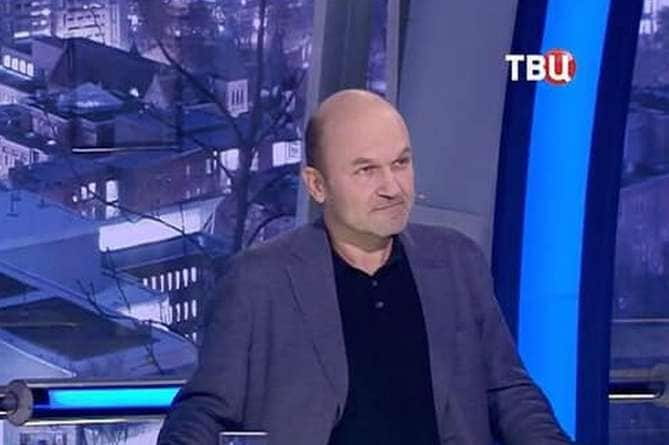Kommersant foreign party analyst Maxim Yusin believes that Moscow has every reason to be content with the results of the September 26, 2021 Bundestag elections. It feared that the German Greens, who opposed the Nord Stream 2 pipeline project, and favored stiffer sanctions on Russia would be victorious and their candidate Annalena Baerbock would assume the chancellorship. The Greens finished a distant third, and even if they receive the foreign ministry they cannot do too much damage to Russia because the chancellor will be either the SPD's Olaf Scholz, or the CDU's Armin Lachet. Both candidates favor cooperation with Russia and Nord Stream 2.
Yusin's analysis follows below:[1]

Germans cycle past billboards displaying the three major candidates for the chancellorship (Source: Rbc.ru)
"The resignation of German Chancellor Angela Merkel and the German parliamentary elections to determine her successor could have brought most doleful consequences for Russia and bilateral relations between the two states. Such a scenario could've happened had the Greens won the election and its leader Annalena Baerbock, who made no secret of her critical attitude towards Moscow (she demanded tougher sanctions, advocated German arms sales to Kiev and categorically opposed the 'Nord Stream-2' gas pipeline) would have become chancellor.
SUPPORT OUR WORK

"At one point it seemed that the Greens emerging victorious after the elections was a rather realistic prospect. Back at the end of spring, they were confidently leading the polls enjoying 28% of voter support. Annalena Baerbock was already considered a potential chancellor. But then it all changed. Several scandals associated with Baerbock undermined her position, and the party's popularity started going downhill. This trend persisted until election day itself. The Greens took only third place, failing to secure even 15% of the votes.
"Around June, when their fall began, one could already argue that Moscow was winning the Bundestag elections (or at least wasn't losing them). After all any other alignments and options for a ruling coalition were far more acceptable for it.
"Now, after the elections, there are two candidates for the chancellor's office: the Social Democrat, Olaf Scholz and the Christian Democrat, Armin Lachet. Both of whom are acceptable for Moscow.
"The leader of the victorious SPD, Scholz, is considered an heir to his party's political traditions. During the Soviet and post-Soviet times, it pursued its particular Ostpolitik, entailing close cooperation with Russia and involving it in joint economic projects. The commissioning of the Nord Stream-2 pipeline provides a classic example of this policy. During the entire campaign, Scholz came out in support of the pipeline.
"However, in case the governing coalition does end up being led by the CDU/CSU bloc and the Social Democrats won't be part of it, it won't be a big problem for Moscow either. In this case Armin Lachet, who always favored cooperation with Russia and supported the Nord Stream 2 project, will become the chancellor.
"The new political picture in Berlin could undoubtedly generate some unpleasant issues for Moscow. 'The Greens, although they have lost the chancellorship, aspire to join the coalition. And there, apparently, they may win, among other things, the Foreign Ministry portfolio. However, one shouldn't overdramatize the situation either, after all it is the chancellor not the foreign minister, who primarily determines foreign policy. Therefore, a meltdown is not envisaged in terms of policy towards Russia.
"A whole different issue is that the new German chancellor won't carry as much weight as Angela Merkel within the EU or in relations with the US (especially at the begging of his term). But there is nothing to be done about that. Even such 'titans' of European politics as Merkel leave the political scene sooner or later. The main thing is that continuity in relations with Moscow should be preserved and that the 'green threat' hanging over them, which until recently seemed quite real, didn't materialize."

Maxim Yusin (Source: Newsarmenia.am)
[1] Kommersant.ru, September 28, 2021.




